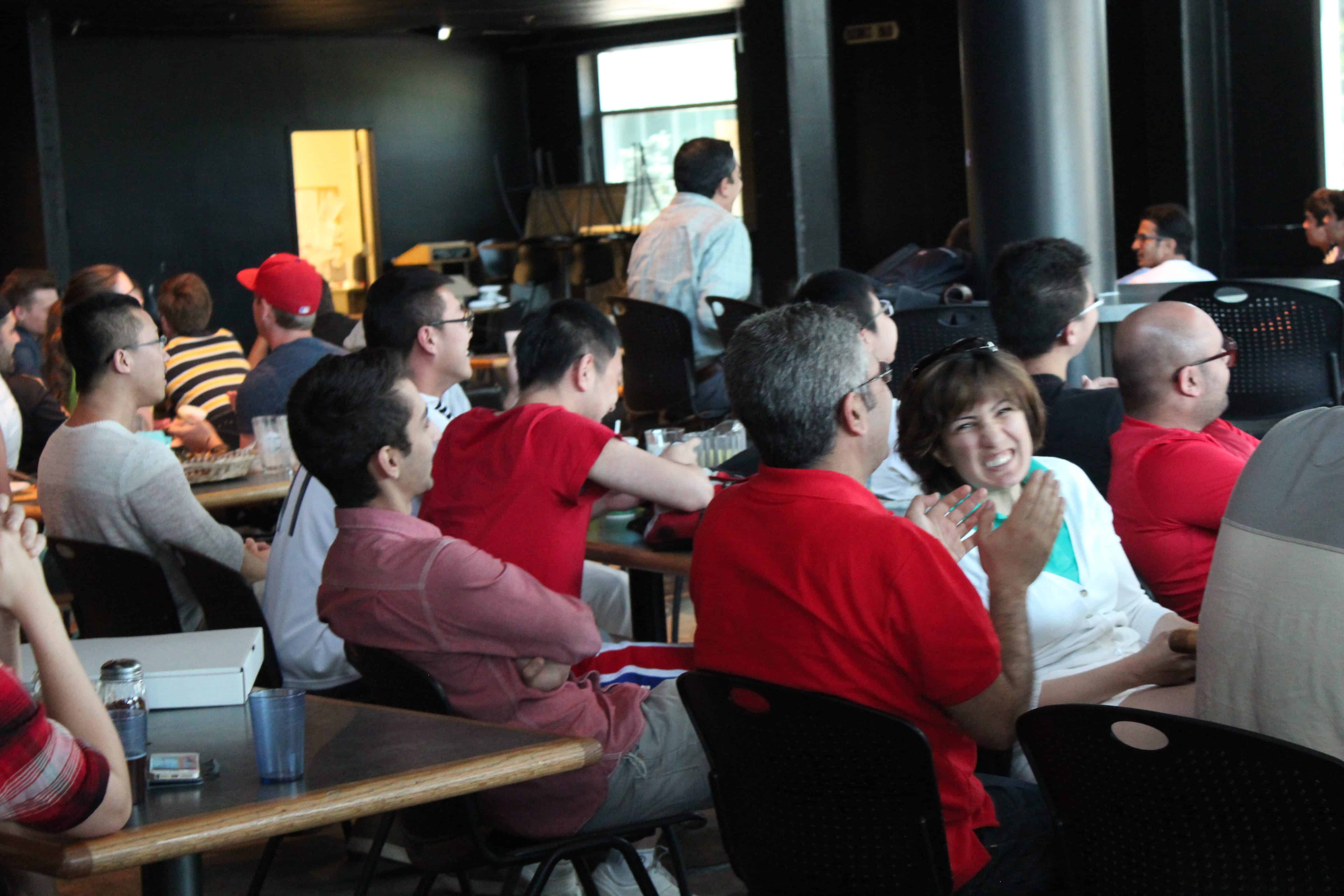When Groups Attack

Don’t become a fan-atic
Article: John Loeppky
Whether their insanity is exhibited on the streets of Rio or in the comment section of the newest Justin Bieber video, a fandom’s impact can be as damaging as it can be far-reaching. Fandoms are at once the heroes and the collective underbelly of anything worth cheering for.
For example, fans of the Brazilian soccer team are exhibiting violent behaviour that even the most committed of English football lunatics would be scared of. Having seen the pictures of flags being burned and amid the controversy that surrounded the World Cup, what with the country in turmoil and all, the rapid descent of the collective national treasure has been a startling manifestation of a nation’s strife. In the lead up, with anti-FIFA graffiti sprouting up faster than could ever have been expected, the blowback potential was palpable. Comparisons to past failures on home soil abounded. Even as hopes were high, the disaster potential radiating from a country with so much invested in a team full of superstars was as easy to detect as corruption in the IOC.
Then, having succeeded for much of the tournament, Brazil fell by a combined score of 10-1 in two games. Their 7-1 loss was likened to an NBA team defeating an evenly matched opponent by 43 more points than expected, or an NFL club beating up on an opponent by fifty points. Brazilians feel as if their birthright has been stolen from them by the downfall of a flawed soccer squad. Star striker Neymar Jr. himself said prior to the game that he felt, because of an injury he suffered in the previous game, that his destiny was “taken” from him. Now the entire nation is bearing the brunt of that feeling. It is this sense of entitlement that creates riots all over the world. These scenes are sometimes joyous (though why Saskatoon rioted after the Blue Jays won, I have no idea) but more often are not. However, entitlement becomes an even bigger issue when the perpetrator is behind a computer.
We see the same symptoms on a certain website. YouTube is the site of both intellectual conversation and senseless outrage. The comment section of each video is the battleground for such mudslinging. Yet, just like sports riots or Twitter arguments between supporters of different fan clubs, many of us watch and alternate between horror and amazement. The consistent pettiness of fandoms, as well as coming from a sense of entitlement, springs from an intense fascination someone’s downfall. Just as we like to see our favourite [insert profession here] recognized and adored; many of us take an equal interest in seeing the downfall of their enemy, perceived or real. The same emotions that create passive-aggressive dialogue, if we can even call it that, are the ones that drive generally sane fans to burn their flag. The motivations may be different, but the sad result is the same.









